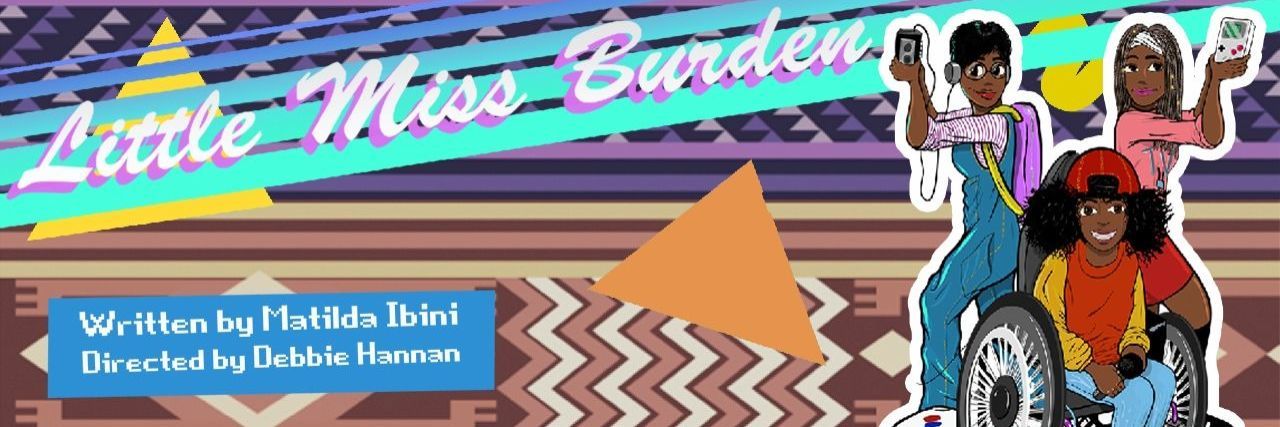Why I Wanted to Tackle Disability Stereotypes in My New Play ‘Little Miss Burden’
The play “Little Miss Burden” is a heightened and magical realist take on my experiences growing up with a disability and aims to demystify some of the stereotypes and tropes about what it means to be disabled. The story is told from the perspectives of three sisters. This particular story explores what it means to grow up with, specifically, a physical impairment; what it means to grow up as the only person in your family with a disability and what that means in a Nigerian household in East London and how all those intersections shaped my identity.
I was very conscious when writing “Little Miss Burden” that I was writing about my formative years and how disability impacted that in complex ways. I also wanted to address the lack of coming-of-age stories for disabled people. Authentic representation is important because it is through stories and storytelling we develop a sense of self. When groups of society aren’t represented authentically, it harms their very existence.
Disabled people have historically been misrepresented, mythologized and dehumanized in ableist narratives. Those harmful narratives negatively impact the quality of life disabled people are able to access in the U.K. and around the world. We can’t be naive about the power stories possess; they have the power to influence behaviors, thoughts and feelings.
“Little Miss Burden” shows how those harmful narratives impacted me growing up but also how harnessing the power of stories helped me find my voice. It was really important for me to not only be writing about my personal experience as a black, disabled woman living in the U.K. but also to bring this to life with both a disabled and non-disabled creative team.
The disabled experience is so vast and varied that “Little Miss Burden” can never be a story about all experiences of disability, which is why it is vital that we have a variety of platforms for disabled artists to exhibit their work because no two experiences of even living with the same condition is ever the same. There is a wealth of stories by disabled artists and practitioners actively being denied the opportunity to showcase their potential.
I hope bringing this story to light through “Little Miss Burden” helps people understand some of the complexities and frustrations disabled people face in simply wanting to live and thrive on their own terms.
Editor’s note: You can see “Little Miss Burden,” written by Ibini and directed by Debbie Hannan, live at the Bunker in London Dec. 4–21. Learn more about Matilda Ibini on her website.
Images via Matilda Ibini

